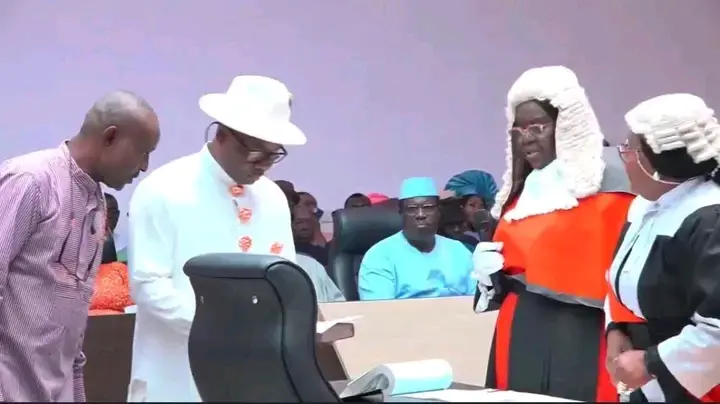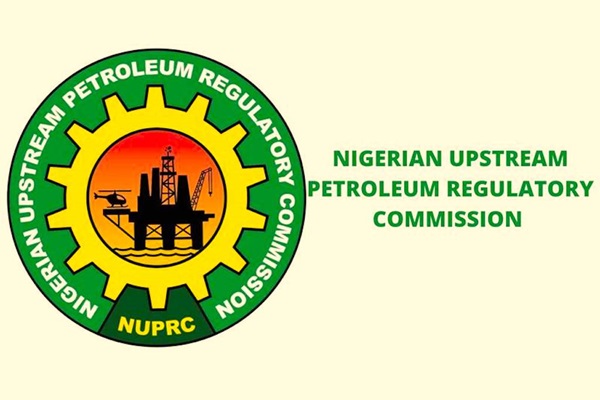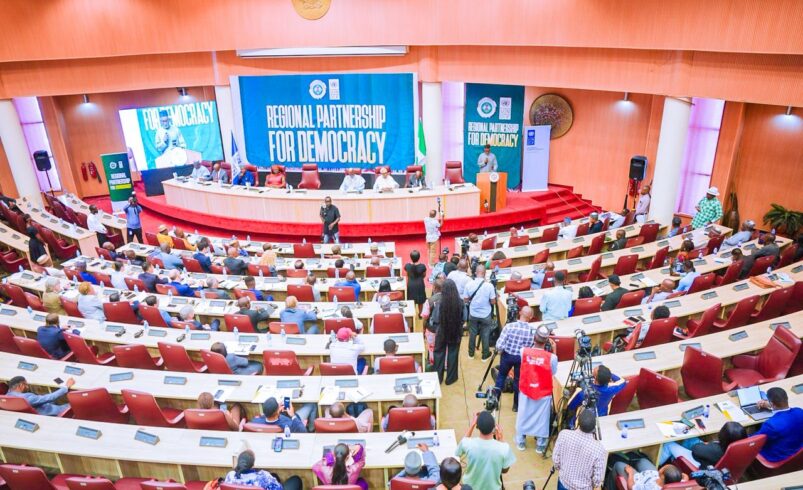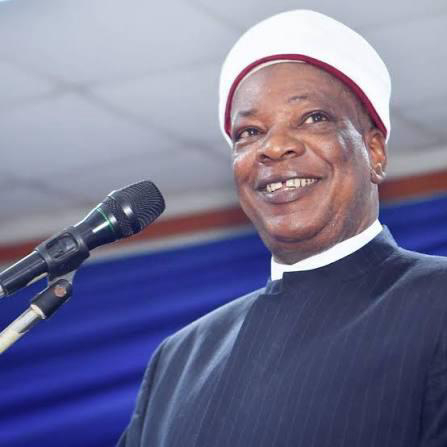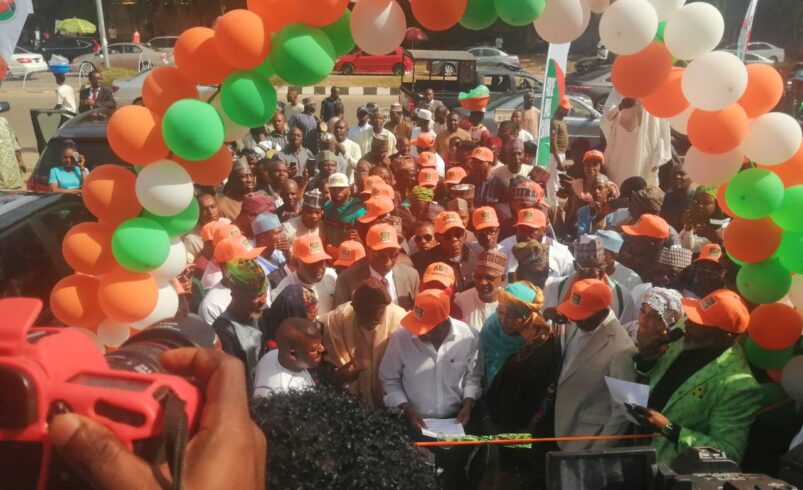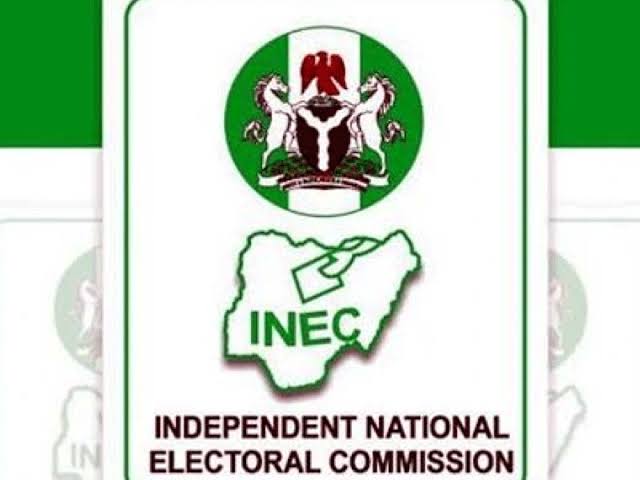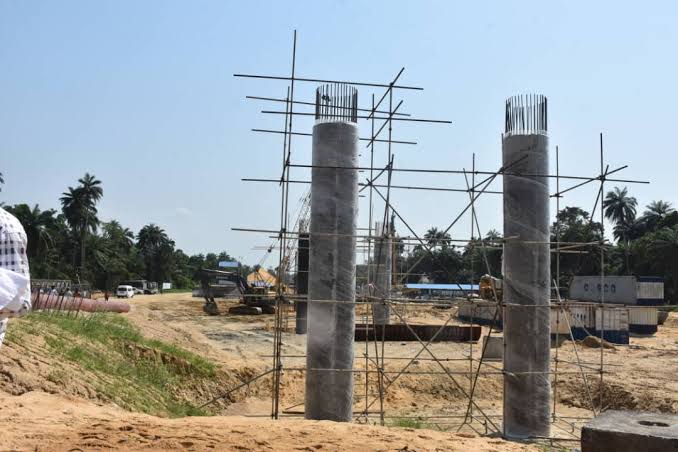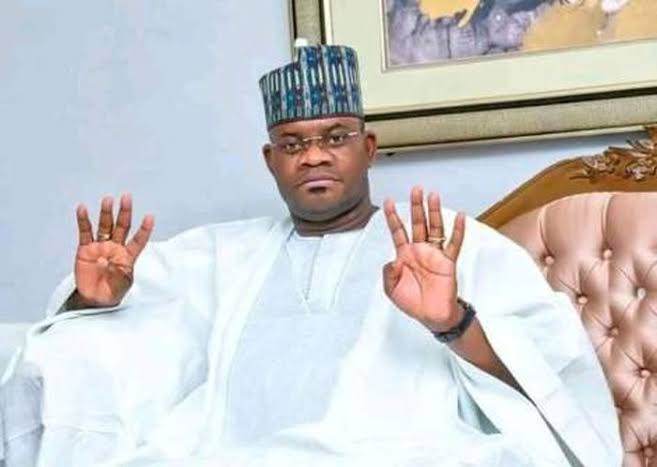By: Goodluck E. Adubazi, Abuja.
In a decisive move to safeguard democratic governance across West Africa, the Federal Ministry of Foreign Affairs and the United Nations Development Programme (UNDP) on Monday launched the Regional Partnership for Democracy (RPD)—a bold, Africa-led framework designed to strengthen democratic institutions, deepen citizen participation, and combat the rising tide of instability across the continent.
At the Regional Partnership for democracy (RDP) signing held at Ministry of Foreign Affairs, Rotunda Hall, On Monday, November 17, 2025, in Abuja, the Minister of Foreign Affairs, Ambassador Yusuf Maitama Tuggar, described the initiative as “the opening of a new chapter in Africa’s democratic journey,” even as President Bola Ahmed Tinubu reaffirmed Nigeria’s leadership role in the region, assuring ECOWAS that the nation “will not disappoint Africa.”
‘Democracy Must Reflect African Realities’ – Tuggar
In his welcome remarks, Ambassador Tuggar warned that democracy in Africa continues to face “sobering and deeply complex challenges”—from flawed elections and political violence to the weakening of judicial and media institutions.
He traced these problems to the blind adoption of governance models that fail to reflect African history, values, and social contexts.
“This incongruity generates friction, which manifests as democratic stagnation, institutional fragility, and abuse of power,” he said.
According to him, the RPD was conceived as a home-grown response to these challenges—one rooted in African values while drawing from global best practices.
Tuggar emphasized that democracy must be owned by Africans to become sustainable:
“Democracy flourishes most sustainably when it is rooted in African values and attuned to local peculiarities.”
He added that the RPD Secretariat will be hosted at the Ministry of Foreign Affairs, while UN technical operations will run from the Office of the UN Resident Coordinator in Abuja—an arrangement aimed at ensuring neutrality and inclusiveness.
In her remarks, UNDP Resident Representative Ms. Elsie Attafuah hailed Nigeria for driving a transformative democratic agenda with continental significance.
She described the RPD as “a compact of values,” not merely a programme, anchored on four pillars:
Strengthening democratic institutions and accountability
Broadening inclusive citizen participation
Promoting credible and transparent electoral systems
Fostering regional cooperation and peer learning
Attafuah noted that the partnership reflects UNDP’s conviction that “the answers to Africa’s governance challenges lie within Africa itself.”
She praised the democratic progress recorded in Liberia, Ghana, Senegal, and Nigeria, asserting that West Africa continues to prove that “democracy remains resilient and capable of renewal.”
President of the ECOWAS Commission, Dr. Omar Alieu Touray, described the RPD as timely and essential, noting that Nigeria’s stability remains central to the survival of democracy in the region.
“If democracy collapses in Nigeria, democracy will collapse elsewhere,” Touray warned, urging the UNDP to continue promoting inclusive democratic values across the continent.
Presidency: ‘Nigeria Will Not Disappoint Africa’
Special Adviser to the President on Foreign Affairs reassured regional partners of Nigeria’s commitment to democratic leadership, urging Africans to treat democracy as “work in progress.”
He called for greater local ownership of democratic systems:
“The time is ripe for Africa to drive African solutions to African problems.”
The highlight of the event was the formal signing of the RPD agreement by the Ministry of Foreign Affairs and the UNDP, followed by a press briefing and group photographs.
The RPD, officials say, is designed to reverse democratic backsliding, counter disinformation, elevate youth and civil society participation, and reinforce long-term governance stability across West Africa.
As Africa grapples with coups, political unrest, and citizen disenchantment, the Abuja launch signals a renewed commitment to building a democratic culture rooted in African identity—and led by Africans themselves.



